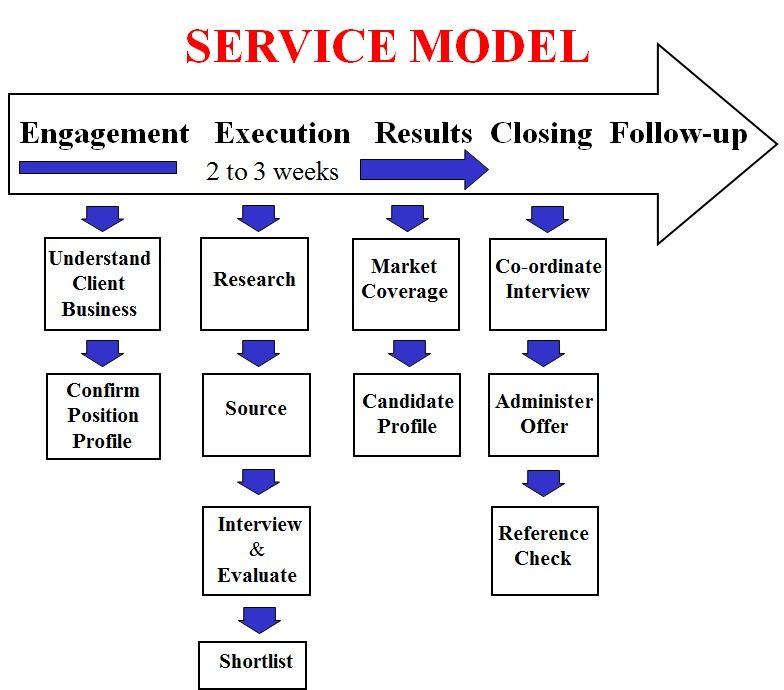How can you, a job candidate, enhance your chances of success at an interview. Remember that your objective in attending an interview is to get the job. You have to make sure that the interviewers are convinced that you are the ideal person for the job. You have to show them why you are better than the other candidates. In effect, you are actually going to ‘market’ yourself as the best person for the job.

Here are some points that you may want to consider.
Insist on meeting or talking with the hiring manager first, whenever possible
Whenever possible, try to insist on meeting the hiring manager first. The hiring manager is going to be your immediate superior in the new job. He would know the type of candidate that he is looking for, the experience and skills that he wants. The human resource department will not know as much as the hiring manager. If the hiring manager finds you suitable, you can talk to the human resource later.
Ask yourself this: would a HR person who is not in your area of work be able to understand fully what you are going to explain about your experience, skills and your work?
State your expectations
Try to ask for the agenda for the interview meeting. Even a verbal one over the telephone is better than none. You need to find out who the interviewers are, their designations, how they are related to the position that you are applying for? Is it just going to be the interview or more? If they are not at all related to the position that you are applying for, ask for the purpose of their presence in the interview. Use the reason that you would like to know so as to prepare yourself. It demonstrates your seriousness in the interview and the position.

Expect respect and set your standard
If the interviewers do not greet you, think cautiously before ever accepting another invitation from that company. That should let you have an idea of the employees in that company: lack of courtesy and respect for others. You have to set your standards high and be sure that the company that you are going to join has a high standard too. If not, do not waste your time.
Show respect to the interviewers
It is always a good practice to show respect to others, irrespective of who the other party is. You never know the influence the other party has over the recruitment decision. Or how closely you are going to work with the person (assuming that you get the job)? Finally, how you treat others reflects on you directly. So do set a high standard for yourself.
Do not ask about renumeration or benefits in the first interview.
Many great candidates make the serious mistake of asking about salary and benefits in the first interview. This is a serious mistake as it sends the wrong signal to the potential employer. The first interview is the opportunity for the interviewee to find out more about job, career prospects, the company, the expectation of the hiring manager and to ‘market’ the candidate.
Remember that no offer has been made yet. Asking about salary and benefits at that time is plain silly because you have not been offered the position! On the other hand, it signals to the potential employer that the interviewee is more interested in the money and personal gain, rather than how he can help the company. Asking such questions in the first interview is almost your guarantee not to get the job. Never, never, never do that.

Dress appropriately for the position
How you dress will depend somewhat on the position that you are applying for. At the same time, it makes sense to do some research on the organization. Or you may politely ask the person who calls you for the interview about the preferred dress code.
Some companies are more formal and they would expect at a long-sleeve shirt and a tie. For ladies, probably a skirt, blouse and a business jacket. If you the position is a sales position, where you are expected to meet clients, then it may be appropriate to dress up a little, such as putting on a business jacket. If the position is taking charge of the engineering department, even a long sleeve shirt without tie can be fine. It demonstrates to the interviewers that you are in tune with the position that you are applying for. That can be a good start.
Be prepared
Never attend an interview unprepared. That would be a sure recipe for failure. Put yourself in the interviewer’s shoes. Ask yourself: what is the interviewer looking for, what questions would he be likely to ask, what business is the company in, what are they famous for, why are you the best person for the position. Do your research. Check out the company’s website. Try to find out as much as you can about the company: from the web, newspapers, magazines, friends, employees, etc.
Listen
Many candidates make the mistake of ‘over-selling’ themselves such that it sounds rather ‘exaggerated’. True, an interview is where you would want to market yourself, to show why you are the best person for the job. But overdoing the process can be counter-productive. It makes the interviewer wonder if what you have said is true.
You should listen to what the interviewer has to say. Show respect to the interviewer. Understand what the interviewer is looking for and answer to the point. Be tactful and do not ‘hard-sell’ yourself.
<;div>
Do not talk bad about your current or previous employers
Whatever your reason for wishing to quit your present position, never talk bad about your current or previous employers. It is very discourteous to talk bad about anyone and reflects on yourself. Be objective. Do not be personal.
What are your opinions about this article? Do let us have your comments. Thanks.
Cheers,
The Singapore Headhunter,


Here are some points that you may want to consider.
Insist on meeting or talking with the hiring manager first, whenever possible
Whenever possible, try to insist on meeting the hiring manager first. The hiring manager is going to be your immediate superior in the new job. He would know the type of candidate that he is looking for, the experience and skills that he wants. The human resource department will not know as much as the hiring manager. If the hiring manager finds you suitable, you can talk to the human resource later.
Ask yourself this: would a HR person who is not in your area of work be able to understand fully what you are going to explain about your experience, skills and your work?
State your expectations
Try to ask for the agenda for the interview meeting. Even a verbal one over the telephone is better than none. You need to find out who the interviewers are, their designations, how they are related to the position that you are applying for? Is it just going to be the interview or more? If they are not at all related to the position that you are applying for, ask for the purpose of their presence in the interview. Use the reason that you would like to know so as to prepare yourself. It demonstrates your seriousness in the interview and the position.

Expect respect and set your standard
If the interviewers do not greet you, think cautiously before ever accepting another invitation from that company. That should let you have an idea of the employees in that company: lack of courtesy and respect for others. You have to set your standards high and be sure that the company that you are going to join has a high standard too. If not, do not waste your time.
Show respect to the interviewers
It is always a good practice to show respect to others, irrespective of who the other party is. You never know the influence the other party has over the recruitment decision. Or how closely you are going to work with the person (assuming that you get the job)? Finally, how you treat others reflects on you directly. So do set a high standard for yourself.
Do not ask about renumeration or benefits in the first interview.
Many great candidates make the serious mistake of asking about salary and benefits in the first interview. This is a serious mistake as it sends the wrong signal to the potential employer. The first interview is the opportunity for the interviewee to find out more about job, career prospects, the company, the expectation of the hiring manager and to ‘market’ the candidate.
Remember that no offer has been made yet. Asking about salary and benefits at that time is plain silly because you have not been offered the position! On the other hand, it signals to the potential employer that the interviewee is more interested in the money and personal gain, rather than how he can help the company. Asking such questions in the first interview is almost your guarantee not to get the job. Never, never, never do that.

Dress appropriately for the position
How you dress will depend somewhat on the position that you are applying for. At the same time, it makes sense to do some research on the organization. Or you may politely ask the person who calls you for the interview about the preferred dress code.
Some companies are more formal and they would expect at a long-sleeve shirt and a tie. For ladies, probably a skirt, blouse and a business jacket. If you the position is a sales position, where you are expected to meet clients, then it may be appropriate to dress up a little, such as putting on a business jacket. If the position is taking charge of the engineering department, even a long sleeve shirt without tie can be fine. It demonstrates to the interviewers that you are in tune with the position that you are applying for. That can be a good start.
Be prepared
Never attend an interview unprepared. That would be a sure recipe for failure. Put yourself in the interviewer’s shoes. Ask yourself: what is the interviewer looking for, what questions would he be likely to ask, what business is the company in, what are they famous for, why are you the best person for the position. Do your research. Check out the company’s website. Try to find out as much as you can about the company: from the web, newspapers, magazines, friends, employees, etc.
Listen
Many candidates make the mistake of ‘over-selling’ themselves such that it sounds rather ‘exaggerated’. True, an interview is where you would want to market yourself, to show why you are the best person for the job. But overdoing the process can be counter-productive. It makes the interviewer wonder if what you have said is true.
You should listen to what the interviewer has to say. Show respect to the interviewer. Understand what the interviewer is looking for and answer to the point. Be tactful and do not ‘hard-sell’ yourself.
<;div>

Do not talk bad about your current or previous employers
Whatever your reason for wishing to quit your present position, never talk bad about your current or previous employers. It is very discourteous to talk bad about anyone and reflects on yourself. Be objective. Do not be personal.
What are your opinions about this article? Do let us have your comments. Thanks.
Cheers,
The Singapore Headhunter,






No comments:
Post a Comment